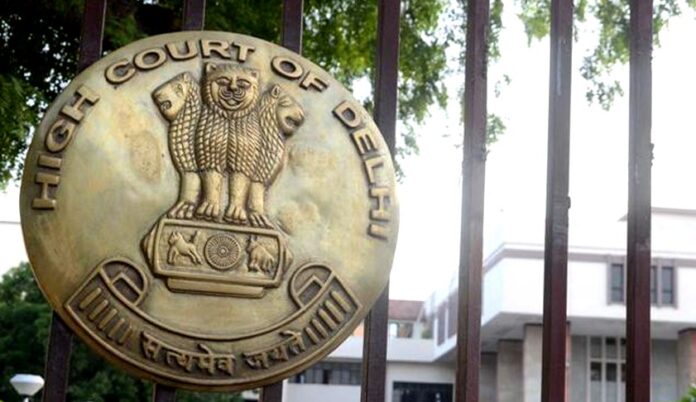The Delhi High Court dismissed a public interest litigation seeking to replace the term “central government” with “union” or “union government” in all orders, notifications, and correspondences. It stated that federalism is part of the fundamental structure of the Indian Constitution and cannot be said to be diluted or violated by its use.
The petitioner’s claim that the use of the term “central government” implies that state governments are subordinate to it is completely unacceptable. A bench led by Acting Chief Justice Manmohan stated that “Central Government,” “Union of India,” and “Government of India” have been used extensively in various statutes and connote the national government in interchangeable expressions.
In the order passed on the PIL, the bench, which also included Justice Mini Pushkarna, stated, “Thus, this Court will not enter into the arena of legislation, which is not within the domain of this Court,” citing the Constitution and other statutes that have applied various expressions to connote the national government.
One of the fundamental aspects of the Constitution of our nation is its federal structure. Federalism, the fundamental framework of our Constitution, cannot be said to be diminished or compromised in any way by the usage of the term “central government.” The fundamental framework of our Constitution serves as the cornerstone upon which our nation’s governance is based. The petitioner’s argument that the term “central government” conveys an incorrect idea that state governments are under the Union government’s authority is completely rejected, the court continued.
The argument aimed to overturn the General Clauses Act’s definition of central government since it went beyond the bounds of the Constitution. “The Union and its Territory” are mentioned in Article 1 of the Indian Constitution, which declares that “India, that is, Bharat, shall be a Union of States.” It’s interesting to note that none of the 395 provisions of the Indian Constitution, which are divided into 22 sections, or any of its eight schedules utilise the phrases “Centre” or “Central Government,” according to the appeal.
The High Court observed in a thorough ruling on December 19 that the terms “Union,” “Union of India,” “Government of India,” and “Central Government” had been used numerous times throughout the Constitution.
As a result, it is clear that the Constitution itself uses a variety of terms to refer to the government, which is the national government, such as the Government of India, the Central Government, or the Union of India. Reading Article 300 of the Constitution clearly demonstrates that it is the ‘Government of India’ that is being referred to as the ‘Union of India,'” the Court said. This fact is made even more evident by reference to Article 300 of the Constitution, which expressly states that the ‘Government of India’ may sue or be sued under the name of the Union of India.
The court stressed that the central government is the Government of India. The Court reasoned that since the Constitution also employs the term “Central Government,” it is permissible to refer to it as the “Government of India,” “Union of India,” or “Central Government” in the same sentence.
It further cited the General Clauses Act, 1897, which defined the term “Central Government,” concluding that the legislature’s intention was unambiguously to include the “Government of India,” which encompasses the “Union of India,” in the definition of the term.
It should be noted that the terms “Central Government,” “Union of India,” and “Government of India” are interchangeably used to refer to the nation’s government in a wide range of regulations. Therefore, this Court will not enter the legislative sphere, which is outside its purview, since the Constitution and other statutes have employed diverse language to refer to the national government, the Court continued. It thus rejected the PIL plea.






